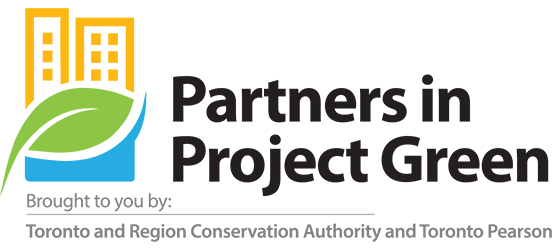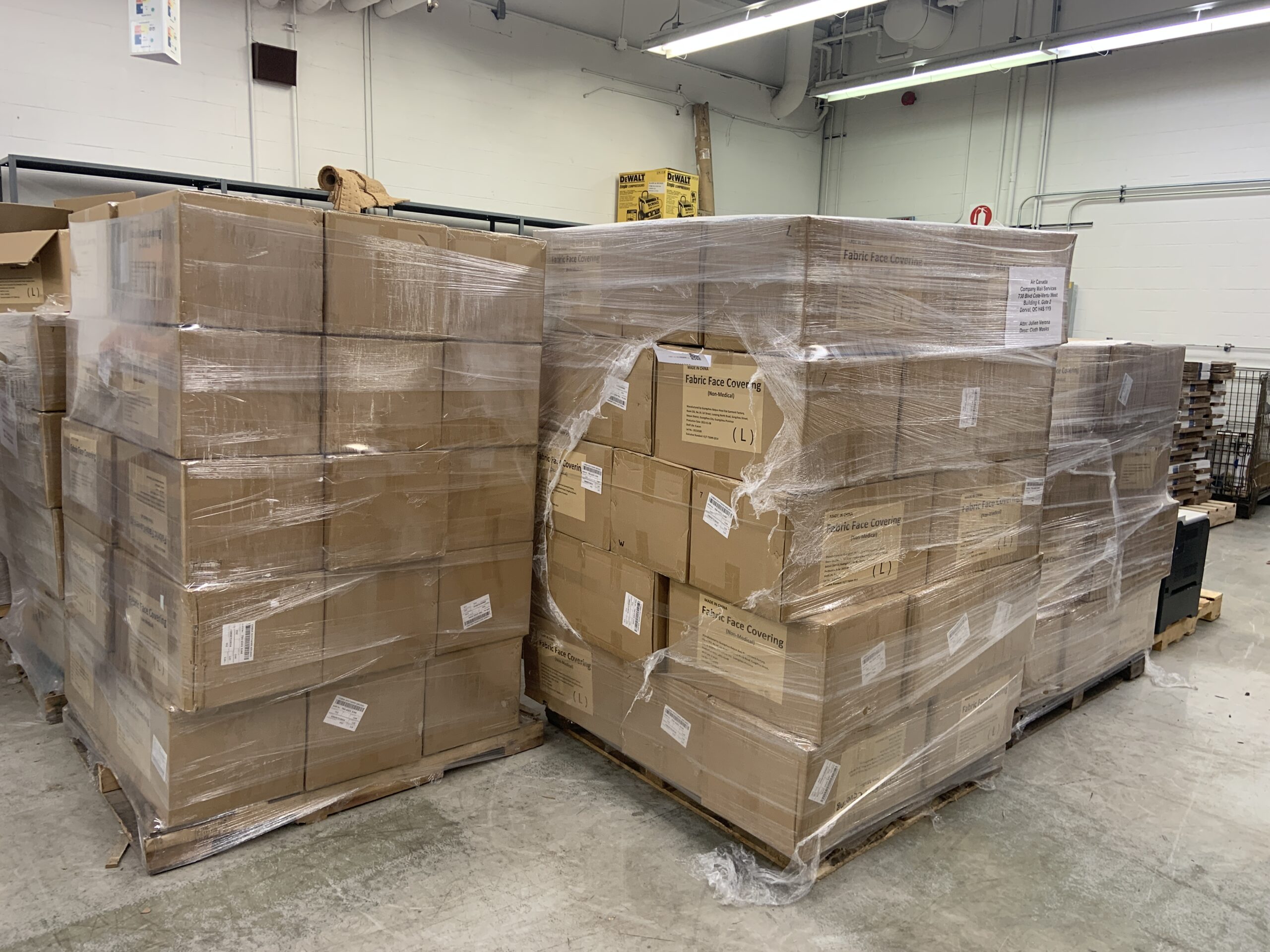Air Canada: 80,000 Reusable Masks Creatively Upcycled and Given to Underserved Communities
Introduction
Scadding Court Community Centre (SCCC) is a multi-service organization located in downtown Toronto. Since its inception in 1978, SCCC has fostered and developed programs for families and community groups by providing and encouraging both local and international opportunities for recreation, education, athletics, community participation and inclusive social interaction. Beyond providing recreation programs for community members of all ages, SCCC prides itself on developing innovative initiatives that support local community.
SCCC programs are split four ways among other City of Toronto hubs. The three other hubs include Progress Place, Delta Family Resources, and The Neighbourhood Organization.
Scadding Court is a registered receiver with Partners in Project Green’s (PPG) Material Exchange program and accepts fabrics, textiles, and clothing materials for upcycling into creative projects through their sewing programs.
Air Canada is Canada’s largest domestic and international airline, the country’s flag carrier and a founding member of Star Alliance, the world’s most comprehensive air transportation network. Air Canada is the only international network carrier in North America to receive a Four-Star ranking from the independent U.K. research firm Skytrax, which in 2021 also named Air Canada as having the Best Airline Staff in North America, Best Airline Staff in Canada, Best Business Class Lounge in North America, as well as an Excellence award for its handling of COVID-19. Also in 2021, Air Canada was named Global Traveler’s Best Airline in North America for the third straight year. Air Canada has also committed to a net zero emissions goal from all global operations by 2050. Air Canada Environmental Affairs department leads a variety of sustainability initiatives including a mandate to reduce waste and improve recycling efforts throughout its business.
Air Canada has been an active participant in PPG’s Material Exchange program as a generator for several years and diverted a wide range of material from landfill to receivers in the Material Exchange network.
Background
In 2021, Air Canada’s Lou-Anne Daoust-Filiatrault submitted 80,000 new, surplus reusable masks for donation through PPG’s Material Exchange program, in search of a sustainable solution. Like with all surplus materials, Air Canada strives to find creative solutions to avoid sending items to landfill. As such, they asked their internal teams to temporarily store these items in a secure location until a new materials exchange partnership could be established with a local group. Air Canada was connected with SCCC, who indicated they could use the masks in their community sewing programs, which require 100% of their resources to be donated.
After receiving the donation, SCCC distributed the masks evenly across their community hubs (20,000 each). Members of the sewing programs expanded their sewing skills by adding creative and colourful designs and logos of their sewing programs. The upcycled masks are being given to communities in need in exchange for an optional donation to support SCCC’s programs. There are four components to the sewing programs: beginner and advanced classes, DIY sewing sessions, free repair clinics, and employment social enterprise training. All programs are funded by the City of Toronto.
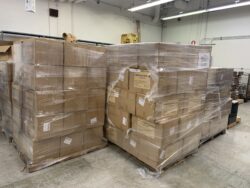
Solution Finding
Air Canada saw an opportunity to donate these surplus masks in a sustainable way and wanted to find a local solution where they would be put to good use. Air Canada explored the option to recycle the masks through fiber recovery but felt that recycling was not the most desirable outcome for a practical item like a new mask. Air Canada looks for donation and reuse solutions wherever feasible and values collaborating with external partners to come up with creative waste diversion solutions.
Donating the masks to SCCC was a mutually beneficial solution. It is often a challenge for SCCC to verify the cleanliness and pest-risk of donations to their programs. Receiving new materials eliminated these concerns. Geographically, having more masks to give to community members not only helps to address this barrier but makes their facilities more welcoming and reduces waste from disposable masks.
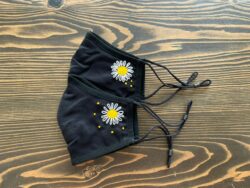
Key Metrics and Evaluation Tools
Air Canada tracks its waste diversion on an annual basis, and these numbers are reported through its Corporate Sustainability Report “Citizens of the World” in accordance with the Global Reporting Initiative (“GRI”). standards. At Environmental Affairs, Air Canada strives to prioritize reuse and donation over recycling or other means of disposal as much as possible. The donation of masks and the like are included in their diversion metrics and contributes to their overall waste diversion efforts.
Like PPG’s Material Exchange program, SCCC’s evaluates the success of their programs based on the weight of material diverted from landfill. Due to COVID-19, donations have slowed, but a major donation like the masks from Air Canada has helped tremendously.
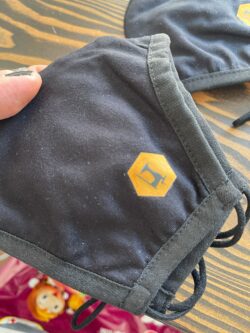
Summary of Savings and Successes
Although the mask donation did reduce overall disposal costs, Air Canada’s priority is always health and safety. In January 2021, Air Canada received APEX’s Diamond Status Certification for the Air Canada CleanCare+ biosafety program for managing COVID-19, the only airline in Canada to attain the highest APEX ranking. With that in mind, they knew that they could find a practical solution for the reusable masks and wanted to ensure that they were put to good use in protecting the public from Covid-19.
So far, SCCC has given out masks to over 300 people in need. They will continue to use the masks in their sewing programs and expect more masks will be upcycled and distributed once programs are fully open.
General Summary
Air Canada follows a Leave less and Do more approach which includes leaving less waste behind in the environment and doing more to support the communities they serve. Air Canada is proud to be a member of PPG who facilitates successful partnerships, like this one, through the Material Exchange program.
Like SCCC, most receivers in the Material Exchange program are smaller, community-based organizations that face capacity limitations with transporting and storing donations. Finding sustainable options for transportation and storage of donated items, especially large volume exchanges like 80,000 masks, requires the creativity and collaboration of multiple agencies committed to advancing the circular economy.
To learn how you can be part of crowd-sourcing solutions to these kinds of common problems, consider joining PPG’s Circular Economy Leaders Consortium by contacting: Chaya.Chengappa@trca.ca.
To learn more about the Material Exchange program or register as a material receiver or generator, contact: Darlene.Coyle@trca.ca.
